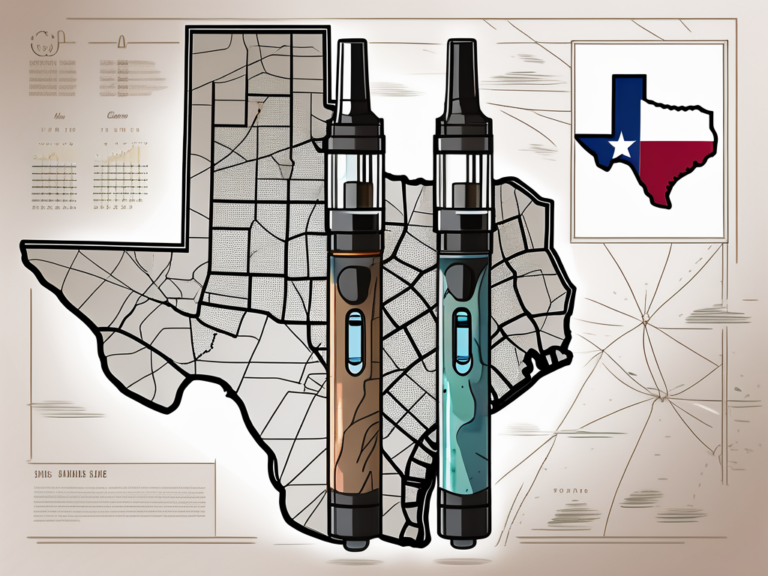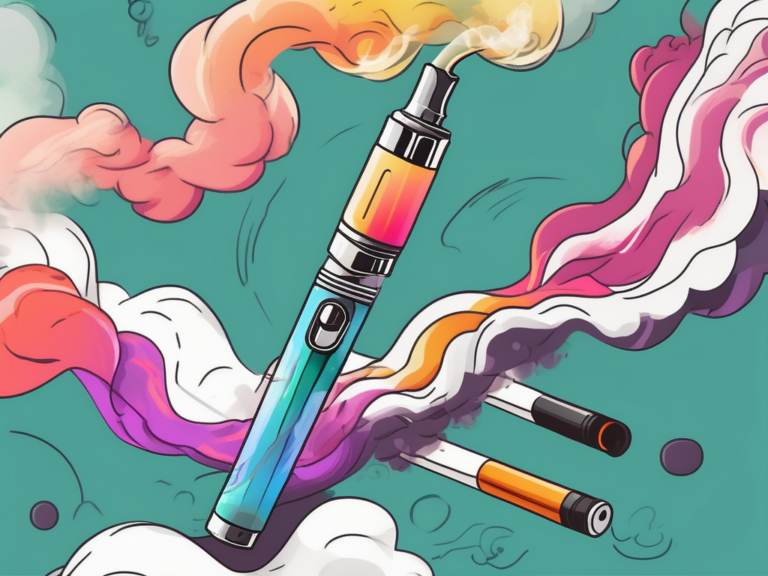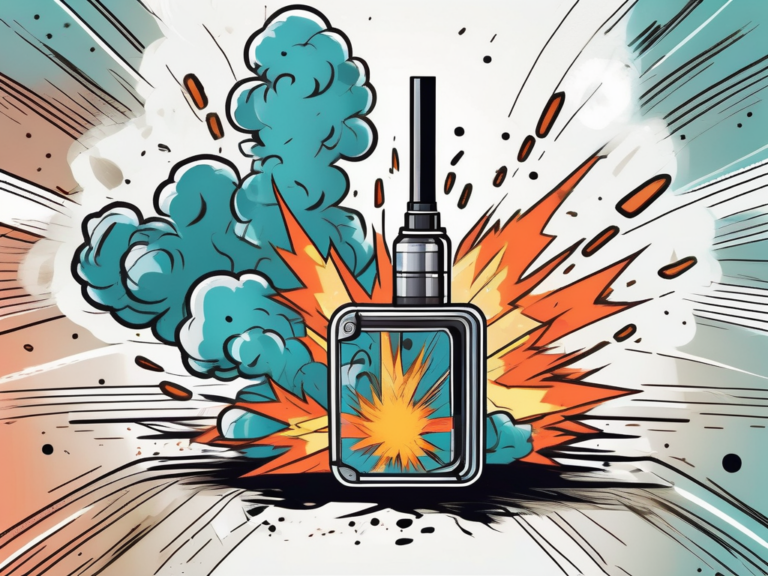when will flavored vapes be banned
Flavored vapes have been at the center of a heated debate in recent years, with concerns about their appeal to young people and potential health risks. The controversy surrounding flavored vapes has prompted legislators at both the federal and state levels to consider banning these products. In this article, we will delve into the various aspects of this debate, including the appeal of flavored vapes, the health risks associated with them, current legislation, the future of flavored vapes, alternatives to flavored vapes, and public opinion on a potential ban.
Understanding the Controversy Surrounding Flavored Vapes
Flavored vapes have gained immense popularity, especially among young adults. These devices offer a wide range of enticing flavors, such as fruit, candy, and dessert-inspired options, which appeal to both novices and seasoned vapers. The availability of a vast array of flavors has been instrumental in attracting young people to try vaping.
However, the controversy arises due to concerns that these flavors act as a gateway for young individuals to experiment with nicotine products. Critics argue that flavors make vaping more enticing and increases the likelihood of future smoking. They raise alarm bells over the potential long-term consequences of vaping on public health.
The Appeal of Flavored Vapes
The diverse range of flavors available in the vaping market has played a significant role in attracting users. Flavored vapes offer a unique sensory experience, tantalizing the taste buds and mimicking the enjoyment of consuming flavored treats. For many enthusiasts, flavors have become a crucial part of the overall vaping experience.
Imagine taking a puff from a vape that tastes like a freshly picked strawberry on a warm summer day, or indulging in the rich and creamy flavor of a vanilla custard. These flavors not only provide a pleasant taste but also create a sense of nostalgia and comfort. They allow vapers to explore a world of flavors, transforming the act of vaping into a delightful adventure for the senses.
Health Risks Associated with Flavored Vapes
While vaping has been touted as a safer alternative to traditional smoking, health experts have raised concerns about the potential risks associated with flavored vapes. The inhalation of certain chemicals used to create flavors, such as diacetyl and acetyl propionyl, may cause respiratory issues when inhaled into the lungs. Although these compounds are deemed safe for consumption, their safety for inhalation remains a subject of ongoing research.
Moreover, the allure of flavors in vapes has been linked to an increased likelihood of nicotine addiction among young people. Nicotine, a highly addictive substance, can have detrimental effects on brain development, especially in adolescents. The potential health risks associated with vaping have led many to call for stricter regulations and even a complete ban on flavored vapes.
It is crucial to strike a balance between the enjoyment of flavors and the potential risks they may pose. As the debate surrounding flavored vapes continues, it is essential to consider the perspectives of both enthusiasts who appreciate the variety of flavors available and those who are concerned about the impact on public health. Only through thoughtful discussions and further research can we navigate this controversy and ensure the well-being of both vapers and non-vapers alike.
Current Legislation on Flavored Vapes
The controversy surrounding flavored vapes has prompted lawmakers to take action at both the federal and state levels. Let’s examine the current regulatory landscape in more detail.
Flavored vapes have become a focal point in the public health debate, with concerns over their appeal to youth and potential long-term health effects. The allure of flavors like mango, mint, and cotton candy has raised alarms among health officials, leading to a push for stricter regulations to curb their popularity.
Federal Regulations on Vaping Products
At the federal level, the U.S. Food and Drug Administration (FDA) has implemented regulations to address the increasing popularity of vaping products. The FDA has placed restrictions on the sale and marketing of these products to minors, aiming to reduce underage access and use. However, there are currently no federal regulations specifically targeting flavored vapes.
In addition to restrictions on marketing to minors, the FDA has also been exploring measures to combat the rise in vaping-related illnesses and deaths. Cases of severe lung injuries linked to vaping have sparked a sense of urgency in regulating the industry more effectively, with calls for comprehensive oversight and safety standards.
State-Specific Laws on Flavored Vapes
Recognizing the need for action, several states have taken matters into their own hands. States such as California, New York, and Michigan have implemented statewide bans on flavored vaping products. These bans typically cover not only traditional-flavored e-cigarettes but also fruity and dessert-inspired flavors.
However, the situation remains inconsistent across the country, with other states opting for less stringent measures, such as flavor and age restrictions or increased taxation on vaping products. The varying legislative approaches highlight the ongoing debate and the challenges that lawmakers face in formulating a unified national policy on flavored vapes.
As the regulatory landscape continues to evolve, stakeholders from public health advocates to industry representatives are closely monitoring developments. The debate over flavored vapes is far from over, with discussions ongoing about the most effective ways to balance harm reduction for adult smokers with youth prevention efforts. The intersection of public health, business interests, and individual freedoms makes this a complex and multifaceted issue that requires careful consideration and collaboration at all levels of government.
The Future of Flavored Vapes
The future of flavored vapes remains uncertain as lawmakers and advocacy groups continue to clash over the appropriate course of action. Let’s explore some possible scenarios.
Predicted Changes in Vape Legislation
Given the growing concerns about the impact of flavored vapes on youth vaping rates and public health, it is likely that stricter regulations will continue to be proposed. These regulations may further restrict the marketing and availability of flavored vapes to curb their appeal to young people.
One potential avenue for lawmakers to explore is implementing a tiered system of regulation, where certain flavors deemed more appealing to youth are subject to stricter controls, while less controversial flavors remain more accessible. This approach could strike a balance between addressing public health concerns and preserving adult vapers’ choices.
Impact on Vaping Industry and Consumers
A ban or severe restrictions on flavored vapes would undoubtedly have far-reaching consequences on the vaping industry. Manufacturers and retailers would need to adapt their business models to comply with new regulations. Furthermore, adult vapers who rely on flavored vapes as a smoking cessation tool or an enjoyable hobby may find their options limited.
On the flip side, some argue that a crackdown on flavored vapes could lead to a resurgence in the popularity of traditional tobacco-flavored products. This shift in consumer preferences could create opportunities for tobacco companies to regain market share lost to the vaping industry in recent years, potentially reshaping the landscape of the nicotine market.
Alternatives to Flavored Vapes
For those looking to transition away from flavored vapes or seeking alternative options, there are several alternatives worth considering.
When exploring options beyond flavored vapes, it’s essential to prioritize health and wellness. One alternative gaining popularity is the use of herbal vaporizers. These devices heat dried herbs or botanical blends to create vapor, offering a flavorful and aromatic experience without the need for added chemicals or flavorings. Popular herbs used in these vaporizers include lavender, chamomile, and peppermint, each known for their unique therapeutic properties.
Nicotine Replacement Therapies
Nicotine replacement therapies (NRTs), such as nicotine patches, gums, and lozenges, can be effective in helping individuals quit smoking or reduce their nicotine dependence. These products provide a controlled dose of nicotine without the added flavors or potential health risks associated with vaping.
Another alternative to flavored vapes is the use of CBD vape oils. Cannabidiol (CBD) is a non-psychoactive compound derived from the cannabis plant known for its potential therapeutic benefits. CBD vape oils offer a natural and calming vaping experience, providing a subtle flavor profile derived from the hemp plant. Users can enjoy the benefits of CBD without the artificial additives commonly found in flavored e-liquids.
Non-Flavored Vaping Options
Non-flavored or “raw” e-liquids are available for those who prefer a simpler vaping experience. These e-liquids typically do not contain any added flavors, allowing users to focus on the pure taste of nicotine or the natural flavors of other ingredients.
For individuals looking to explore non-nicotine alternatives, there are nicotine-free e-liquids available in a variety of base liquids such as vegetable glycerin (VG) or propylene glycol (PG). These options provide a smooth vaping experience without the presence of nicotine, catering to those who enjoy the act of vaping without the addictive substance.
Public Opinion on Flavored Vape Ban
The debate surrounding the potential ban on flavored vapes has sparked divided opinions among the public and various stakeholders.
Advocacy Groups and Their Arguments
Advocacy groups supporting a ban on flavored vapes argue that it is essential to protect young people from the dangers of nicotine addiction and the potential long-term health consequences of vaping. They believe that removing appealing flavors is a necessary step to discourage youth initiation and mitigate the public health risks associated with vaping.
Consumer Response to Potential Ban
On the other hand, adult vapers who enjoy flavored vapes have expressed concerns about losing access to their preferred products. Some argue that flavored vapes play a crucial role in their smoking cessation journey, helping them transition away from traditional cigarettes.
In conclusion, the controversy surrounding flavored vapes continues to generate debate among lawmakers, health experts, and the general public. While the appeal of flavored vapes and the potential health risks associated with them are valid concerns, finding a balance between protecting young people and allowing adult use is essential. As the discussion persists, stakeholders must carefully consider the available evidence and strike a fair and evidence-based regulatory approach that addresses these concerns without unduly infringing on adult consumers’ choices and harm reduction strategies.






